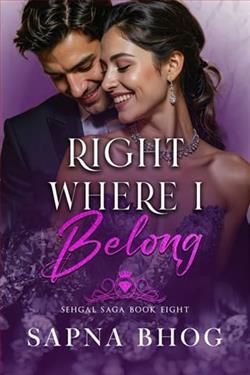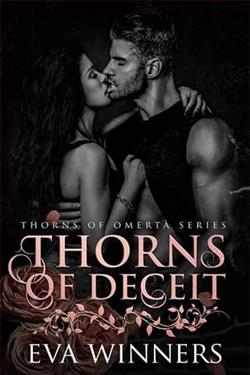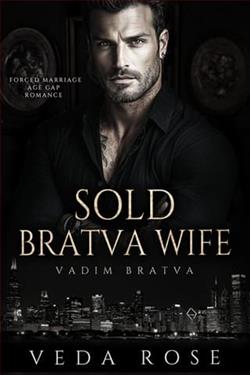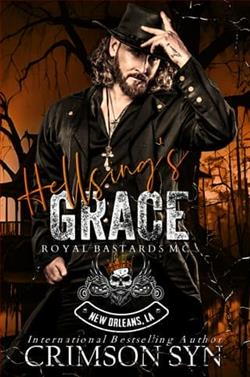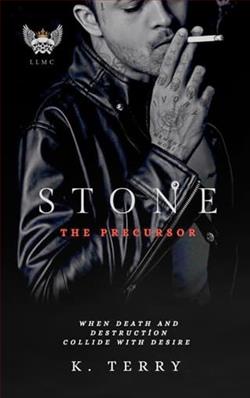Page 24 of Taming the Highland Misfits
She needed to find some employment and a place to stay. Isla gave a little half-laugh. What could she do? She was unable to even cook a plate of porridge properly. She might be able to serve drinks in a tavern or work in a shop, perhaps even do some farm work; she was a strong woman after all. She could not stand the thought of doing any of those things, but what was her alternative? Stealing? Prostitution? No. She would rather be dead than sink so low.
The only choice was obvious; marriage to Iain Crawford. Would she ever become so desperate that she resorted to accepting him as her husband? She had fallen a long way, Isla thought, but she would have to fall a lot further before she considered marrying him. She would rather starve.
However, she had made up her mind that she would not stay and be a burden to Finley any more. As soon as he came in, she was determined to tell him that she would be leaving the next morning. She might have to humiliate herself and ask him for money, then pay it back, but it was far better than giving in and marrying a man she hated.
10
Finley, too, was troubled. He was thinking about the hurt look on Isla’s face as he had reprimanded her about the porridge, and he felt both ashamed of himself and sorry for her. He thought about the brown eyes that he could lose himself in; she was such a lovely woman and he had treated her abysmally. He would make it up to her as soon as he was home, he decided, hoping that she would still speak to him.
He had pushed Isla to the forefront of his mind to avoid thinking about Alec and Iain Crawford, the tavern owner and his son. He could not prove that either of them had ever had anything to do with his mother’s death, but heknew.Instinctively, in some inexplicable way, he felt that these two were somehow connected to it.
He thought of Iain first. He was not unlike his father, except that he was about a hundred pounds heavier. Finley had often been surprised that he could still walk.
He thought back to a day about a year before when he had been dragged reluctantly into the Lonely Shepherd by a friend. He had never been much of a drinker, but he did not want to disappoint his boyhood companion. Although he knew that taverns did not usually smell good, the Lonely Shepherd was in a class of its own. The odour of unwashed bodies, stale urine, rotten straw and a foul underlying stench which he could not name was making him feel nauseous.
He took his ale over to the door and stood breathing in the fresh air from outside to make himself feel better. Presently he felt a hand tapping his shoulder, and he turned to see the beefy form of Iain Crawford behind him. He was surprised; Crawford had never spoken to him before, and Finley had no idea that he even knew his name.
“How are ye, Finley?” he asked amiably. Finley could smell the whisky wafting from his breath; he was drunk already and it was barely early evening.
“Well enough,” he replied. “You?”
Iain held up a half-full whisky glass and chuckled, making all his chins wobble. He was truly a disgusting sight. His small blue eyes, which were almost hidden in rolls of fat, were bloodshot, and his nose was the typical blue-veined variety of the true alcoholic. He had pendulous jowls and fat hands with dimpled knuckles like those of a baby, except much bigger. When he smiled, he exposed a row of yellow, crooked teeth which Finley felt like straightening with a well-aimed fist.
“I am always fine as long as I have my wee pal wi’ me,” Iain replied, holding up his whisky glass, then chuckling again before he threw back the whisky in one gulp and called for another. “One for yourself, Finley? I will treat ye of course. I dinnae like tae see my pals drinkin’ alone.”
Finley frowned. As far as he could remember, this was the first time he had ever spoken to Iain Crawford, so how could they be ‘pals?’ However, he knew that Iain could be aggressive, so he did not point that fact out to him. Instead, he held up his glass of ale, which was still over half-full, and shook his head, “thank you, but as ye can see, I still have plenty o’ my ale left.”
Iain laughed heartily at that. “Ale?” he scoffed. “That’s a lassies’ drink. Get a proper man’s drink down ye!” At that moment, the serving woman appeared with his whisky, and he ordered another one.
“I told ye I am fine,” Finley said irritably. “Thank ye, but if I had wanted a whisky I would have asked ye for one.”
“Are ye refusin’ my hospitality?” Iain asked threateningly, thrusting his face up to Finley’s.
For a moment, he was tempted to refuse, but he knew how that would end. He had heard tales of what happened if you crossed Iain Crawford; he had a gang of aggressive hangers-on at his command who were always ready to fight for him. Finley despised himself for doing it, but at last, he gave in and nodded. “A’ right, Iain. Thank ye for your generosity.”
He wondered why the man had sought him out and what he had done to deserve the dubious gift of his attention. Added to his woes was the fact that he hated whisky, but he decided to drink it this once in order to keep the peace. When the drink arrived, he was about to take a sip of it, but Iain obviously had other ideas.
“A drink tae both o’ us!” he announced, holding up his cup. “Slàinte Mhath!”
“Slàinte Mhath!” Finley replied, somewhat less enthusiastically. He took a tiny sip of the foul stuff and tried not to gag. He had always wished that he was like every other Scotsman he knew; they all loved their national drink and were very proud of it, but he simply could not stand it.
Iain looked Finley up and down for a moment then favoured him with an evil smile.
“Ye are a fine figure o’ a man, Finley,” he remarked, raising his glass again. “I am always lookin’ for good men tae join me an’ my boys.” He waved to indicate the half-a-dozen men who were lounging against the bar and watching him carefully.
Finley almost panicked for a moment, having no idea what to say. He took another sip of his whisky to give himself a moment to think. If he said ‘yes’ he would have to hang about with Iain Crawford and his cronies, but if he refused—God alone knew what would happen to him. He knew that following Iain was not all they did. They were criminals; everyone knew it but were all too scared to speak of it.
However, he had to say something, so he decided on the lesser of two evils. “Thank ye for the offer, Iain,” he replied graciously, “but I am busy wi’ the blacksmith’s, so I dinnae have the time. I need tae earn money so I can eat.”
Iain stared at him in disbelief for a moment, then he shook his head, making his fat jowls wobble. Then he laughed and thumped Finley on the back. “I never take ‘no’ for an answer,” he said, with a wheezy chuckle. “Come an’ say hello tae the lads.”
Finley was beginning to become annoyed. “I said no and I meant it,” he told the other man firmly. “You have plenty of other fellows tae help ye.” He nodded to the men standing at the bar, all of whom were now watching them carefully. He put his hand in his pocket to make sure that the small knife he usually carried with him was there. It was not much of a weapon, but he thought that it could do enough damage to let him escape.
Two of the men came towards him, fists clenched, and he took a step back before drawing his weapon from his pocket, his eyes never leaving theirs. He was within arm’s length of his enemy, easily within striking distance of his throat.
However, at the last moment, Iain laughed.
“If this eejit doesnae want tae be part o’ oor wee gang that is his bad luck.” He looked at Finley, smiling contemptuously as his gaze travelled from his feet back to his head again. Privately, Iain Crawford was afraid of Finley McGill, which was why he wanted him to be on his side, but he would never show it. He was jealous of the big man’s good looks and strong stature, since he himself had neither attribute. As well as that, he had once had a nightmare in which Finley cornered him and beat him to a pulp.








